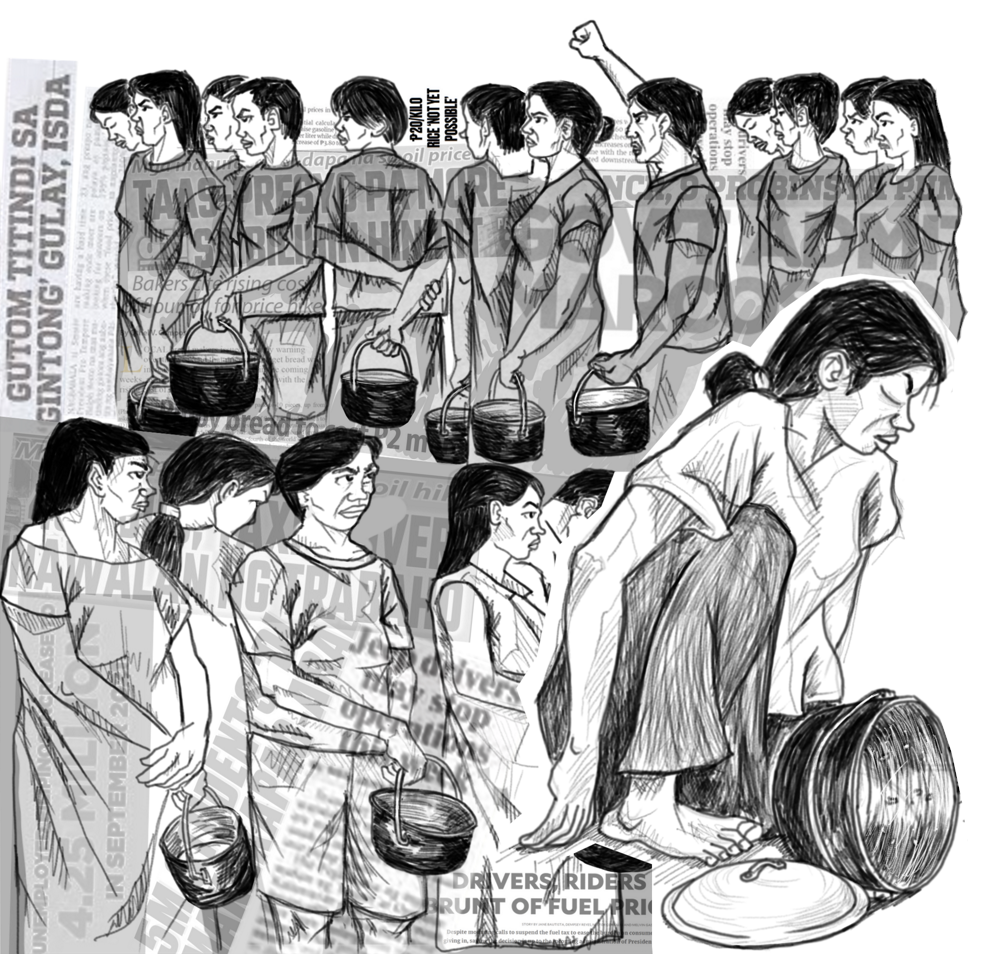Jobs crisis: Rise in the number of informal work


Contrary to claims of the Marcos regime and its economists, the Philippine economy is not moving forward since it was reopened last year. Concurrent with the decline in employment rate, the number of workers with full-time jobs dropped. This shows more and more people are being pushed into the so-called informal work sector.
This sector consists of the self-employed, those who work on small farms or businesses, assistants, and unpaid family workers. Workers in this sector receive no or very low wages, have no job security and no benefits. They are not covered by labor laws and are denied the right to form associations and unions.
They are voiceless in the enterprises or subsectors they work in. They have no workplace protection making them vulnerable to inhuman work conditions, abuse and excessive exploitation and oppression. It is not surprising that many children and slave workers are found in this sector. In the definition of the International Labor Organization, these jobs are far from being formal or decent.
In January, an estimated 20 million or 42.2% of the total number of Filipino workers belong to this sector. This is much larger than the 16.8 million in January 2020. If irregular workers in private establishments are included, the number can reach 34.5 million or 73% of the total employees in the country. This means that seven out of 10 Filipino workers do not have a decent job.
These workers enter the informal economy not by preference but because they have no choice if they want to get paid or earn. A few of them earn more compared to regular workers, such as the professionals and college graduates. However, the greater majority of them are mired in poverty, live in dense communities, have no access to decent social services, and surplus capital, and are often targets of abuse by authorities.
A large number of informal jobs are deeply dependent on clients, customers or families. In January, the number of self-employed workers fell by 746,000. The number of unpaid family workers or unpaid family jobs also fell by 433,000. In the case of the latter, workers often rely entirely on the employer-family for their food and housing.
The growth of the informal sector increases while the economy’s capacity to create decent or regular jobs contracts. In January, up to 1.7 million jobs were lost due foremost to the reduction of workers in enterprises and businesses after the Christmas season. At the same time, the number of unemployed rose by 153,000, and the underemployed by 458,000.
In addition, the number of people in the labor force dropped from 51.2 million to 49.7 million (1.5 million decrease). As explained by the Ibon Foundation, the decline in the number of workers reflects the growing number of workers who have already lost hope of finding a job but are not categorized as unemployed.
The largest number of unemployed are from the agricultural sector (1.2 million) generally in seasonal work. Work in wholesale and retail trade went down by 375,000 to 10.6 million; in construction, the number of jobs went down by 288,000 to four million.
In addition, graduates of the K-12 program who are rejected for falling short of company requirements, augment the total number of unemployed.
According to the Commission on Human Rights (CHR), their studies show that among the reasons cited are the inadequacy of fresh graduates in “soft skills” or abilities in interpersonal relations, communications and emotions.









